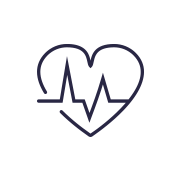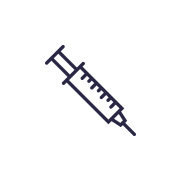
Nursing (Children's) MSc
Nursing (Children's) - MSc
The aim of the MSc Nursing programme is to develop Children’s Nurses who are inquisitive, questioning, clinically astute, empowered, cognitively adaptable, and able to respond to current and future needs of health care delivery. The programme will prepare students to care for children and young people with mental, physical, cognitive or behavioural health challenges. MSc Children's Nursing students will learn how to put children, young people and their families at the centre of their care.
Applications for 2026 are open. Please note the 'equal consideration date' (11.59pm 27 February 2026). You can still apply after this date, however we cannot guarantee applications will be given the same level of consideration as those that arrive before this date.
Month of entry
- September
Mode of study
- Full time
Fees for 2026/27 academic year
-
UK Full Time - £9,535 per year*
International Full Time - £18,200 per year
*£9,535 for the 2025/6 academic year (subject to Parliamentary approval)
Duration of study
- 2 years
This course is no longer accepting applications from international students for the 2025/26 academic year.
Why study Nursing (Children's) at Keele University?
Course summary
If you're a highly motivated graduate with care experience who wishes to become a registered children’s nurse and gain an MSc in a two year timeframe, the MSc Nursing graduate entry programme is perfect for you.
The MSc Nursing programme reflects the changing delivery of health care, whereby services are designed around the needs of children, young people, and their families, with services focussing on the whole child not just their illness. Children and young people receive nursing care in a range of settings including home, school and hospital and therefore the programme will provide students with a wide range of practice placements, in order to understand the healthcare experience of children and young people in different settings.
The programme builds your academic skill sets, professional responsibility and technical complexity related to patient care throughout the two years. Successful completion of this innovative programme will ensure you will meet the registration requirements of the Nursing and Midwifery Council.
The programme meets the NMC standards for pre-registration nursing education. The NMC (2018a) reviewed their standards with the publication of 'Future Nurse: Standards of Proficiency for Registered Nurses' and this programme reflects the comprehensive range of subject knowledge, clinical skills and leadership required of the Registered Nurse. Higher Education (HE) quality standards through Quality Academic Assurance Standards (QAA) are met through the Higher Education Credit Framework for England bodies (Quality Assurance Agency for Higher Education, 2018; 2021). In addition, the programme philosophy addresses contemporary challenges faced by health care practitioners in providing effective clinical care, recognising the key issues developed in the NHS in England at 75: priorities for the future (NHS, 2023).
The Keele ‘Future Nurse’ MSc Nursing programme has been designed to meet the seven NMC platforms, which underpin pre-registration nursing education (NMC, 2018a). These require you, regardless of your chosen field, to demonstrate core knowledge, skills, standards, behaviours to meet people’s needs, as well as field-specific knowledge and skills as required in either adult, children’s, learning disability or mental health nursing. Two NMC annexes (A and B) detail extensive communication skills and clinical procedures, which are also included in the programme:
- Platform 1: Being an accountable professional.
- Platform 2: Promoting health and preventing ill-health.
- Platform 3: Assessing needs and planning care.
- Platform 4: Providing and evaluating care.
- Platform 5: Leading and managing nursing care and working in teams.
- Platform 6: Improving safety and quality of care.
- Platform 7: Coordinating care.
- Annexe A: Communication and relationship management skills.
- Annexe B: Nursing Procedures.
We aim to facilitate your development to become one of the best post-graduate nurses in the country. To achieve this you will develop a skill set which includes:
- Deliver safe, competent, evidence-based nursing practice
- Adopting professional values, attitudes and behaviours
- Developing your interpersonal skills
- Effective team-working
- Improving management and leadership skills
- Demonstrate competence in research and be able to successfully manage a project
Studying Postgraduate Nursing at Keele
Hear from our students and staff – who share their personal experiences of postgraduate study and teaching at Keele.
Course structure
The course structure ensures you study a range of modules that are highly relevant to children’s nursing. During your two year programme you will study 10 core modules.
The programme is divided between theoretical learning and practice learning modules, underpinned by the NMC Standards (NMC, 2018a). You will be assessed in all theory and practice modules and this will contribute towards you overall degree classification. Your programme will be split 50% theory and 50% practice to allow you to achieve the 2,300 theory hours and 2,300 practice hours for the course (inclusive of the RPL). You will undertake 90-credits of compulsory modules for each year for the duration of the two-year programme and all modules will be assessed at level 7. We have adopted the HEE Maximising Leadership Learning in the Pre-Registration Healthcare Curricula strategy (2018) and our curriculum threads- Focus on self, Working with others and Improving.
In your first year you build and expand on the fundamentals of nursing practice including essential care and learn how to work in a professional setting. You also explore the concepts of nursing care in context, health promotion, pharmacology and develop a research plan for your dissertation.
In your second year you build on your experience and develop your skills in caring for patients with higher acuity requirements using clinical reasoning skills. You will develop leadership skills in practice, take on more responsibility and leadership in preparation for your professional transition from student nurse to registered professional. You will be prepared to manage complex nursing care to enhance the safety and quality of the patient experience. You will complete your dissertation project demonstrating the detailed application and findings of your study.
Year 1 (Level 7)
|
Compulsory modules |
Module Code |
Credits |
|
Nursing Care in Context and Health Promotion |
NUR-40095 |
30 |
|
Masters Clinical Nursing Practice 1 |
NUR-40107 |
15 |
|
Research Methods in Nursing |
NUR-40097 |
15 |
|
Applied Pharmacology and Safety Msc |
NUR-40099 |
15 |
|
Masters Clinical Nursing Practice 2 |
NUR-40109 |
15 |
Year 2 (Level 7)
|
Compulsory modules |
Module Code |
Credits |
|
Dissertation |
NUR-40105 |
30 |
|
Masters Clinical Nursing Practice 3 |
NUR-40111 |
15 |
|
Leadership in Nursing Practice |
NUR-40103 |
15 |
|
Clinical Judgement and Decision Making |
NUR-40101 |
15 |
|
Masters Clinical Nursing Practice 4 |
NUR-40113 |
15 |
The list of modules are indicative and we expect to offer the same modules, however this may change due to staff availability. If the modules change we will inform you during the admissions process.
Modules
The module details given below are indicative, they are intended to provide you with an idea of the range of subjects that are taught to our current students. The modules that will be available for you to study in future years are prone to change as we regularly review our teaching to ensure that it is up-to-date and informed by the latest research and teaching methods, as well as student voice. The information presented is therefore not intended to be construed and/or relied upon as a definitive list of the modules available in any given year.
Nursing Care in Context and Health Promotion
Nursing Care in Context and Health Promotion (30 Credits)
The aim of this module is to build upon your previous health care related knowledge and skills, and develop a critical awareness of current philosophical, theoretical, ethical and legal perspectives and parameters and new insights which are at the forefront of nursing practice for the health and well-being of people. To provide prevention of ill-health and health promotion in relation to epidemiology, demography, genomics, global patterns of health and wellbeing outcomes and how these impact on life choices.
This module also introduces concepts of the wider determinants of health, underpinning factors relating to health and wellness across the lifespan, and the role of the nurse as a health promoter. You will study these topics relating to physical and mental health in society and community as a whole, as well as focusing on your own field of nursing.
Promoting health is a key feature of the nursing role across all fields and forms one of the seven platforms for pre-registration nursing education (NMC 2018). You will be able to apply the knowledge gained in this theory module to your practice settings, and to your career as a qualified nurse.
Research Methods in Nursing
Research Methods in Nursing (15 Credits)
The aim of this module is to develop your knowledge to be a questioning, critical, reflective thinker who can confidently discuss, share and apply evidence-based findings with others to make evidence-informed decisions in all situations and challenge practice when required.
This first year nursing module will enable students with an undergraduate degree to transfer and further develop research skills to support evidence based decision making in nursing practice. Within the module, published literature will be explored specific to your field of nursing and area of interest. This module focuses on the important topic of evidence-based practice in nursing. Knowledge and skills used in nursing need to have an evidence base to be safe and effective for people with healthcare needs requiring nursing care. This module will enable you to critique nursing studies to understand what constitutes robust research in nursing and how this applies to your field of nursing practice. The knowledge and skills gained in this module will support you in the final year of your studies when you will undertake a dissertation, and as a qualified nurse to enable you to ensure care is evidence-based, and challenge this as required.
Applied Pharmacology and Safety
Applied Pharmacology and Safety (15 Credits)
This module will enable you to gain a deeper understanding into aspects of pharmacology and concepts of safety and quality in caring for people. You will learn about differing roles within the Multi-disciplinary team (MDT) in relation to prescribing and accountability and responsibility of the nurse.
You will gain insight into the importance of quality improvement risk assessment and how they can influence care through clinical skills, critical discussion and practice experiences. You will also be involved in MDT discussions about medication and treatment plans and introduced to the differing roles of healthcare professionals within prescribing in placement.
You will have the opportunity to reflect on critical incidents in practice and make links to your reflective practice. You will also take part in inter-professional education during this module with other students from the Faculty of Medicine and Health Sciences to aid mutual learning about each other’s roles in healthcare.
Clinical Judgement and Decision Making
Clinical Judgement and Decision Making (15 Credits)
This second and final year module focuses on the key nursing skills of appropriate clinical judgment and decision-making in nursing practice which are core to the role of the competent registered nurse. You will develop your knowledge of assessment tools to assist you in making safe judgments about people’s healthcare needs relating to your field of nursing. You will also learn about how major or serious incidents in practice are managed, and how critical incidents and complaints about care are investigated.
Leadership in Nursing Practice
Leadership in Nursing Practice (15 Credits)
This module will enable the student to gain further knowledge and understanding relating to the theoretical principles of leadership and management, reflecting on their own leadership qualities and behaviours. It also focuses on the cost effectiveness of the provision of nursing care, and how a business case would be developed to support the funding of an initiative in nursing practice. Leading and managing nursing care effectively is a key feature of future nursing practice as a registered nurse, and forms one of the seven platforms of pre-registration nursing education (NMC 2018) Students may take part in inter-professional education during this module with other students from the Faculty of Medicine and Health Sciences (subject to Faculty confirmation) to aid mutual learning about each other’s roles in healthcare.
Dissertation
Dissertation (30 Credits)
This second year module contributes towards the MSc Nursing award and eligibility to register with the Nursing & Midwifery Council (NMC). You will be encouraged to explore and appraise interesting topics of your choice based on their experiences that will enhance nursing practice in your field of nursing. The focus is on developing your ability to work independently to confidently synthesise literature findings to make recommendations for practice toward your field of nursing. As a future registered nurse you will need to understand how quality and effectiveness of nursing care can be evaluated in practice, to be able to improve service delivery and people’s experience of healthcare.
Masters Clinical Nursing Practice 1,2,3,4
Masters Clinical Nursing Practice 1,2,3,4 (15 Credits per Modules)
The first practice module of the MSc nursing programme enables you to further develop your knowledge and skills in a clinical practice setting relating to your field of nursing, managing more complex health needs and the care of a group of people, prioritising health needs, and recognising opportunities for health promotion. You are supported by a supervisor and are assessed in practice by a separate practice assessor, and reviewed by an academic assessor.
The second practice module of the first year of the MSc nursing programme enables you to further develop your knowledge and skills in a clinical practice setting relating to your field of nursing, managing more complex health needs and the care of a group of people, prioritising health needs and undertaking medicines management. You are supported by a supervisor and are assessed in practice by a separate practice assessor and academic assessor. This module prepares you for future practice modules to enable then to progress through the nursing programme.
The third practice module in the second and final year of the nursing programme enables you to begin to consolidate your nursing practice, focusing on leading nursing care for people with complex needs, managing teams to support a group of people, prioritising needs and delegating appropriately, applying research to evidence-based practice, and using safe clinical judgment and decision-making in their clinical placement. You will also reflect on your presentation skills in practice. You will develop the nursing knowledge, skills and behaviours to become the accountable professional future registered nurse required by the NMC (2018)
The fourth and final practice module of the second and final year of the nursing programme enables you to consolidate your nursing practice, focusing on leading nursing care for people with complex needs, managing teams to support a group of people, prioritising needs and delegating appropriately, applying research to evidence-based practice, and using safe clinical judgment and decision-making in their clinical placement. You will also reflect on their own leadership qualities in practice. You will consolidate the nursing knowledge, skills and behaviours necessary to become the accountable professional future registered nurse required by the NMC (2018).
Masters Clinical Nursing Practice 1
Masters Clinical Nursing Practice 2
Masters Clinical Nursing Practice 3
Masters Clinical Nursing Practice 4
Entry requirements
The following section details our typical entry requirements for this course for a range of UK and international qualifications. If you don't see your qualifications listed, please contact us to find out if we can accept your qualifications.
Typical offer
Please ensure that you read the full entry requirements by selecting your qualifications from the dropdown menu below. This will include any subject specific, GCSE/Level 2 Maths, and English language requirements you may need.
Please select your country from the drop-down list below for the full entry requirement information
UK
2:2 degree in any subject
and
660 hours practical experience (paid or unpaid) in a healthcare setting
You will also need: 4 / C in GCSE Maths or Level 2 Functional Skills Maths, plus an English language qualification (see below)
Bangladesh
60% in a 4-year degree or 3-year degree with a 2-year Master's in any subject from a public university or CGPA 2.8 in a 4-year degree or 3-year degree with a 2-year Master's in any subject from a private university
and
660 hours practical experience (paid or unpaid) in a healthcare setting
We don’t accept degrees from certain universities, please see our Bangladesh Country Page for more information
You will also need: 3 in Higher or Intermediate Certificate Maths or 4 / C in GCSE Maths, plus an English language qualification (see below)
Canada
70% or C or a GPA of 2.5 in a degree (Ordinary or Honours) in any subject
and
660 hours practical experience (paid or unpaid) in a healthcare setting
You will also need: 50% in Grade 11 Maths or 4 / C in GCSE Maths, plus an English language qualification (see below)
China
70% in a degree in any subject or 65% in a degree in any subject from a '211' university
and
660 hours practical experience (paid or unpaid) in a healthcare setting
You will also need: 60% in Senior Secondary School or Gaokao Maths or 4 / C in GCSE Maths, plus an English language qualification (see below)
Ghana
Second class degree in any subject
and
660 hours practical experience (paid or unpaid) in a healthcare setting
You will also need: C6 in Senior School Certificate Maths or 4 / C in GCSE Maths, plus an English language qualification (see below)
India
55% or CGPA 6/10 in any degree of three years or longer
and
660 hours practical experience (paid or unpaid) in a healthcare setting
You will also need: 6 or C2 in Secondary School Examination Maths, or Pass in Standard XII Maths, or 4 / C in GCSE Maths, plus an English language qualification (see below)
Kenya
Second class degree in any subject
and
660 hours practical experience (paid or unpaid) in a healthcare setting
You will also need: C in KCSE Maths or 4 / C in GCSE Maths, plus an English language qualification (see below)
Nepal
60% / 2.4 in a 4-year Bachelor's degree in any subject or 65% / CGPA 2.8 in a 3-year Bachelor's degree in any subject
and
660 hours practical experience (paid or unpaid) in a healthcare setting
You will also need: 40% or GPA 2.5 in the School Leaving Certificate or 4 / C in GCSE Maths, plus an English language qualification (see below)
Nigeria
Second class degree in any subject
and
660 hours practical experience (paid or unpaid) in a healthcare setting
You will also need: C6 in Senior School Certificate Maths or 4 / C in GCSE Maths, plus an English language qualification (see below)
Pakistan
We accept a range of qualifications from Pakistan. Please visit our Pakistan Country Page for more information
or we will consider demonstrated relevant professional qualifications or experience
You will also need: 33% in Higher Secondary Certificate Maths or 4 / C in GCSE Maths, plus an English language qualification (see below)
South Africa
Second class division 2 / 60% in a Bachelor's degree with Honours in any subject or Second class division 1 / 70% in an Ordinary Bachelor's degree in any subject
and
660 hours practical experience (paid or unpaid) in a healthcare setting
You will also need: 4 in NSC Maths or 4 / C in GCSE Maths, plus an English language qualification (see below)
Sri Lanka
55% in a Special Bachelor's degree in any subject
and
660 hours practical experience (paid or unpaid) in a healthcare setting
You will also need: C in O-level Maths or 4 / C in GCSE Maths, plus an English language qualification (see below)
Uganda
Second class degree in any subject
and
660 hours practical experience (paid or unpaid) in a healthcare setting
You will also need: 6 in UACE or UCE Maths or 4 / C in GCSE Maths, plus an English language qualification (see below)
Zimbabwe
Second class degree in any subject
and
660 hours practical experience (paid or unpaid) in a healthcare setting
You will also need: C in Ordinary Level Maths or 4 / C in GCSE Maths, plus an English language qualification (see below)
Requests to defer entry to a later academic year will be considered on a case-by-case basis. Due to the high demand for this programme,
Academic entry requirements
- Please note that you will be required to have obtained the academic entry requirements before applying.
Additional entry requirements:
- All applicants are required to make a Recognition of Prior Learning (RPL) claim to demonstrate how their previous care experience and graduate studies have equipped them to undertake an accelerated nursing programme.
- Applicants are required to provide a portfolio of evidence and to confirm the relevance of your theoretical knowledge and practice experience.
- Applicants are required to map their evidence to the programme learning outcomes, NMC Platform Proficiencies.
- A satisfactory enhanced Disclosure and Barring Service (DBS) or overseas police check, and health checks are required for all applicants whom are successful at interview.
English language requirements
All of our courses require an English language qualification or test. For most students, this requirement can be met with a 4 or C in GCSE English. Please see our English Language guidance pages for further details, including English language test information for international students. For those students who require an English language test, this course requires a test from Group E.
References
Normally, you will need to provide at least one academic reference to support your application unless you have been out of study longer than two years. If it has been more than two years since you last studied on a degree-level programme, you will normally need to provide an employment reference instead. For more information about Academic References, please see our Postgraduate how to apply web pages.
Personal Statement/Statement of Purpose
Please see our Postgraduate how to apply web pages for guidance on what to include in your personal statement.
Recognition of Prior Learning
The Recognition of Prior Learning (RPL) is a process which enables applicants to receive recognition and formal credit for learning acquired in the past through formal study or work and life experiences.
RPL can also be requested for admission onto the start of a programme in lieu of the admission requirements. For more information, see our Recognition of Prior Learning web pages.
General information
The entry grades outlined in this section indicate the typical offer which would be made to candidates, along with any subject specific requirements. This is for general information only. Keele University reserves the right to vary offer conditions depending upon a candidate's application. For international students, find out how we work with approved agents as part of our admissions process.
Clinical Simulation in the School of Nursing and Midwifery
Clinical simulation helps our students to develop their experience, confidence and skills. We have two simulation spaces on campus for students to practice their skills, in addition to the facilities at the Clinical Education Centre, and two simulation families of eight mannequins.
Social life, societies and sports
Find out moreAccommodation
Find out moreLocal area and travel
Find out moreBoost your employability
Find out morePostgraduate funding and scholarships
Fees
UK Full Time - £9,535 per year*
International Full Time - £16,600 per year
*£9,535 for the 2025/6 academic year (subject to Parliamentary approval).
Travel for placements
A student’s geographical location, when possible, is taken into account when allocating to clinical placements and, whilst efforts are made to limit student travel, it is not possible to guarantee that placements will be in particular locations and students may be required to travel some distance for their placements. Clinical placements currently in use by the School of Nursing and Midwifery are within a 50 mile radius from the university. Travel expenses may be claimed in accordance with information from the NHS Learning Support Fund guidelines for Home applicants.
Uniform
Students will be provided with a uniform from our designated supplier to adhere to the School Uniform Policy. You will need to provide your own appropriate footwear for placements as per the School Uniform Policy, and it is recommended that you purchase a fob watch.
Disclosure and Barring Service (DBS) Clearance
Subscription to the Disclosure and Barring update service is a requirement and currently costs £13 per year which students pay online at the start of each academic year. The initial DBS application cost is financed by the school.
Occupational Health Clearance
Students registering on the MSc Adult Nursing programme are required to have a health fitness report provided by the University’s Occupational Health Service. As part of this process you are required to complete a health questionnaire. Depending on your field of nursing you will be required to have a number of immunisations such as Hepatitis, MMR, Varicella, and Pertussis. MMR vaccines are available free of charge at your GP surgery and we strongly advise you have these if needed and can provide documented evidence of vaccination. Appointments will be arranged for any outstanding vaccines once you have commenced your course. You may be required to make a contribution towards the Occupational Health and vaccination requirements of the programme.
Students with Disabilities
Students with disabilities are entitled to have reasonable adjustments considered in relation to their practice learning. However, while reasonable adjustments may be made to the way that a student meets a competency or standard, the competency or standard itself cannot be adjusted. Therefore a decision will need to be made before a student starts a course, and at relevant points within the programme, as to whether they will be able to meet all the competencies of the course, taking into account what reasonable adjustments can be made if for example they have a disability.
ID Card
Placement providers may charge a fee for ID/security cards.
Funding
Whether you're continuing from undergraduate study or returning to education, our dedicated financial support team is here to help.
Eligible MSc students can apply for funding support via the NHS Learning Support Fund which includes a £5,000 training grant and certain travel and accommodation costs for placements. More information, including the eligibility criteria can be found on the NHS Learning Support Fund website.
Please note, if your course offers a January start date, the January 2026 start date falls in the 2025/26 academic year. Please see the tuition fees archive for the 2025/26 fees.
Planning your funding
It's important to plan carefully for your funding before you start your course. Please be aware that not all postgraduate courses and not all students are eligible for the UK government postgraduate loans and, in some cases, you would be expected to source alternative funding yourself. If you need support researching your funding options, please contact our financial support team.
Scholarships
We are committed to rewarding excellence and potential. Please visit our bursaries and scholarships webpages for more information.
For continuing students, fees will increase annually by RPIX, with a maximum cap of 5% per year.
For continuing international students, fees will increase annually by RPIX, with a maximum cap of 5% per year.
Additional costs
Your career
Upon successful completion of this course you will be a qualified, capable postgraduate nurse ready to work in your chosen specialism. You will have developed competency in assessing, delivering and managing nursing care and be able to confidently support your nursing practice decisions with a robust evidence base. You will have the research and leadership skills to work as a leader and change agent.
You will graduate with a MSc and key sets of clinical, interpersonal and research skills, ready to register as an adult nurse with the Nursing and Midwifery Council. You will have the opportunity to find employment in a range of settings in the UK or internationally. Nursing work can be diverse and in planning your future career you may wish to follow one of the following career pathways: Practitioner, Educator, Researcher or Manager.
Preparation for nursing practice encompasses learning in the spheres of knowledge, skills, attitudes and behaviours. It is recognised that evidence based knowledge is required for safe and effective nursing practice and as such programme content is driven by the NMC Future Nurse: Standards of proficiency for registered nurses, QAA Academic and Practitioner Standards for nursing alongside the QAA Master’s Degree Characteristics (NMC, 2018; QAA, 2010). The programme builds in terms of academic skill sets, professional responsibility and technical complexity throughout the two years.
Teaching, learning and assessment
The programme is divided between theoretical learning and practice learning modules, underpinned by the NMC Standards (NMC, 2018a). You will be assessed in all theory and practice modules and this will contribute towards your overall degree classification. Your programme will be split 50% theory and 50% practice to allow you to achieve the 2,300 theory hours and 2,300 practice hours for the course (inclusive of the RPL). You will undertake 90-credits of compulsory modules for each year for the duration of the two-year programme and all modules will be assessed at level 7. We have adopted the HEE Maximising Leadership Learning in the Pre-Registration Healthcare Curricula strategy (2018) and our curriculum threads- Focus on self, Working with others and Improving healthcare, into each year of the programme and is aligned to the Module.
In your first year, you build and expand on the fundamentals of nursing practice including essential care and learn how to work in a professional setting. You also explore the concepts of nursing care in context, health promotion, pharmacology and develop a research plan for your dissertation.
In your second year, you build on your experience and develop your skills in caring for patients with higher acuity requirements using clinical reasoning skills. You will develop leadership skills in practice, take on more responsibility and leadership in preparation for your professional transition from student nurse to registered professional. You will be prepared to manage complex nursing care to enhance the safety and quality of the patient experience. You will complete a dissertation which involves a review of literature and application to practice through suggested recommendations.
In your programme you will sometimes be expected to role play and engage in simulated clinical scenarios with other students, such as the practice and observation of practical skills in physical contact with other students. For some specific practices, this may necessitate modification of dress - e.g., to shorts and t-shirt. These activities will be conducted in a professional, safe, respectful and culturally sensitive way, under the supervision of academic staff, according to a defined protocol .
Taught modules:
|
Compulsory modules |
Module Code |
Credits |
|
Nursing Care in Context & Health Promotion |
NUR-40095 |
30 |
|
Masters Clinical Nursing Practice 1 |
NUR-40107 |
15 |
|
Research Methods |
NUR-40097 |
15 |
|
Applied Pharmacology and Safety |
NUR-40099 |
15 |
|
Masters Clinical Nursing Practice 2 |
NUR-40109 |
15 |
Year 2 (Level 7)
|
Compulsory modules |
Module Code |
Credits |
|
Dissertation |
NUR-40105 |
30 |
|
Masters Clinical Nursing Practice 3 |
NUR-40111 |
15 |
|
Leadership in Nursing Practice |
NUR-40103 |
15 |
|
Clinical Judgement & Decision Making |
NUR-40101 |
15 |
|
Masters Clinical Nursing Practice 4 |
NUR-40113 |
15 |
As with all our courses, you can expect to experience a stimulating blend of learning activities, from practice learning, simulation, problem based learning, tutorials, lectures and clinical skills workshops through to innovative web-based activities and inter-professional learning.
Each module will encourage you to demonstrate deep learning that includes subject-specific knowledge and transferable skills. Service user involvement in the programme will ensure that the concept of person-centeredness is explicit.
We have a wide variety of innovative assessments that will develop and enhance your graduate skill set. These may include report writing, simulated activities, an MCQ exam, case studies, presentations, reflective writing, developing a research proposal, and undertaking a Masters dissertation.

Keele Postgraduate Association (KPA)
A focal point for the social life and welfare needs of all postgraduate students during their time at Keele.
Keele Postgraduate Association (KPA) is a Students’ Union that specialises in representing the interests of postgraduate students. With a dedicated home at the KPA Clubhouse, a popular venue on campus for students, staff and residents alike – the KPA offers support, advice and a welcoming community for postgraduates.
Our expertise
All current teaching staff hold active NMC registration as either a nurse or midwife; those from other Schools who contribute to the programme are registered with the appropriate professional body. The majority of staff have recordable teaching qualifications or are working towards achievement of this. Moreover, they have extensive experience of teaching at undergraduate and postgraduate level and many are external examiners at other universities. Some staff have dual qualifications. Staff are actively encouraged to hold honorary contracts with health care provider organisations and to utilise this to ensure they remain updated with contemporary issues within their own field. A number of staff have additional roles or memberships with external organisations for example, NMC Reviewers, External Advisors to other HEI's, Member of RCN Education Forum, Members of HEE leadership in pre-registration nursing group, Journal reviewers, Member of NHS Ethics Committee, Local Provider Committees and charitable organisations. The School has a significant number of staff that hold PhDs and Professional Doctorates with a number of staff currently studying at doctorate level.
s
A number of staff have Fellowship of the Higher Education Academy (HEA) and many staff are working towards this. Staff are actively involved in research across the School and belong to one of the School's four research groups. Honorary lecturers, visiting lecturers and leading clinicians are integral to the delivery of modules within the programme and are utilised where appropriate. In addition, the School has a number of clinical staff on secondment to the School.
Facilities
Learning in the School of Nursing and Midwifery at Keele is enhanced by superb classroom facilities, an excellent Health Library, computer suite, and established relationships with local primary and secondary health care providers.
To complement your University studies, as part of the MSc Nursing programme, we offer a diverse range of clinical placements across community and hospital settings to enable you to to work a range of with patients accessing health services.
Your Nursing and Midwifery checklist
In addition to our academic requirements, to be accepted onto a nursing or midwifery programme you must also fulfil a range of additional requirements and expectations to ensure you can practice safely and complete the programme effectively.
|
DBS Check An enhanced DBS clearance prior to starting your course is required so that the public are protected, and their safety can be assured. You'll need to provide additional documents to support your DBS application which may include a current passport, valid driving licence, birth certificate and utility bill. |
Shifts Programmes are demanding but rewarding. You are expected to work a variety of shift patterns including early, late and night shifts to enable you to participate in care over a 24 hour period. Shift work provides you with excellent experience and builds your skillset. |
Travelling to placements You are expected to fulfil your placement requirements which may require you to travel. Organisation is therefore key to ensure you are able to complete a range of placements. |
|
Occupational Health Occupational Health Clearance is required to assess medical fitness to engage in pre-registration nursing and midwifery programmes. |
Placement circuits are fixed Placements during your course are fixed to ensure you get the range of experiences required to become a nurse or midwife. |
Personal care You will care for a diverse group of people and will deliver personal care to patients with different gender identities. |
|
Vaccines You must have the required vaccinations so that you protect yourself and those whom you are caring for. |
Uniform Uniform must be worn smartly, as you represent Keele University and also the nursing and midwifery professions. |
Hours Programmes are full time and can be demanding. You can expect your time to be split into 50% theory and 50% practice. |











